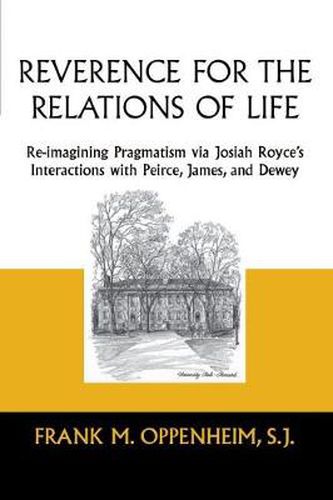Readings Newsletter
Become a Readings Member to make your shopping experience even easier.
Sign in or sign up for free!
You’re not far away from qualifying for FREE standard shipping within Australia
You’ve qualified for FREE standard shipping within Australia
The cart is loading…






Josiah Royce and William James lived in Cambridge, Massachusetts, on Irving Street, just two doors apart, and Charles Peirce grew up only blocks away. John Dewey was born and educated in nearby Vermont. These four great thinkers shared more than geographic space; they engaged in a series of formative philosophical discussions. By tracing the interactions of Royce (1855-1916) with James, Peirce, and Dewey, Oppenheim re-imagines pragmatism in a way that highlights the late Royce’s role as mediator and favors the seed-plant image of O. W. Holmes, Jr., over the corridor image of Papini.
Josiah Royce emphasized that communities of all sizes-ranging from families to towns-needed reverence for the relations of life not only to thrive but to survive. This theme permeates the dialectic of Royce’s interactions with Peirce, James, and Dewey. Oppenheim analyzes the agreement and disagreement of these thinkers on the method and content of philosophy, skepticism and intelligibility, and nominalism and intentionality, as he uncovers their varied stances toward transcendent Reality.
Oppenheim repudiates Ralph Barton Perry’s tactic of using Royce as a foil to display James positively, by offering a richer portrait of Royce. Oppenheim calls attention to Royce’s doctrine of two levels and its effects on the distinction of human and super-human, by showing the contrast of Royce’s third attitude of will against two primarily self-centered attitudes of will, and by examining the roles of Spirit, Community, and semiotic process in Royce’s late thought.
$9.00 standard shipping within Australia
FREE standard shipping within Australia for orders over $100.00
Express & International shipping calculated at checkout
Josiah Royce and William James lived in Cambridge, Massachusetts, on Irving Street, just two doors apart, and Charles Peirce grew up only blocks away. John Dewey was born and educated in nearby Vermont. These four great thinkers shared more than geographic space; they engaged in a series of formative philosophical discussions. By tracing the interactions of Royce (1855-1916) with James, Peirce, and Dewey, Oppenheim re-imagines pragmatism in a way that highlights the late Royce’s role as mediator and favors the seed-plant image of O. W. Holmes, Jr., over the corridor image of Papini.
Josiah Royce emphasized that communities of all sizes-ranging from families to towns-needed reverence for the relations of life not only to thrive but to survive. This theme permeates the dialectic of Royce’s interactions with Peirce, James, and Dewey. Oppenheim analyzes the agreement and disagreement of these thinkers on the method and content of philosophy, skepticism and intelligibility, and nominalism and intentionality, as he uncovers their varied stances toward transcendent Reality.
Oppenheim repudiates Ralph Barton Perry’s tactic of using Royce as a foil to display James positively, by offering a richer portrait of Royce. Oppenheim calls attention to Royce’s doctrine of two levels and its effects on the distinction of human and super-human, by showing the contrast of Royce’s third attitude of will against two primarily self-centered attitudes of will, and by examining the roles of Spirit, Community, and semiotic process in Royce’s late thought.